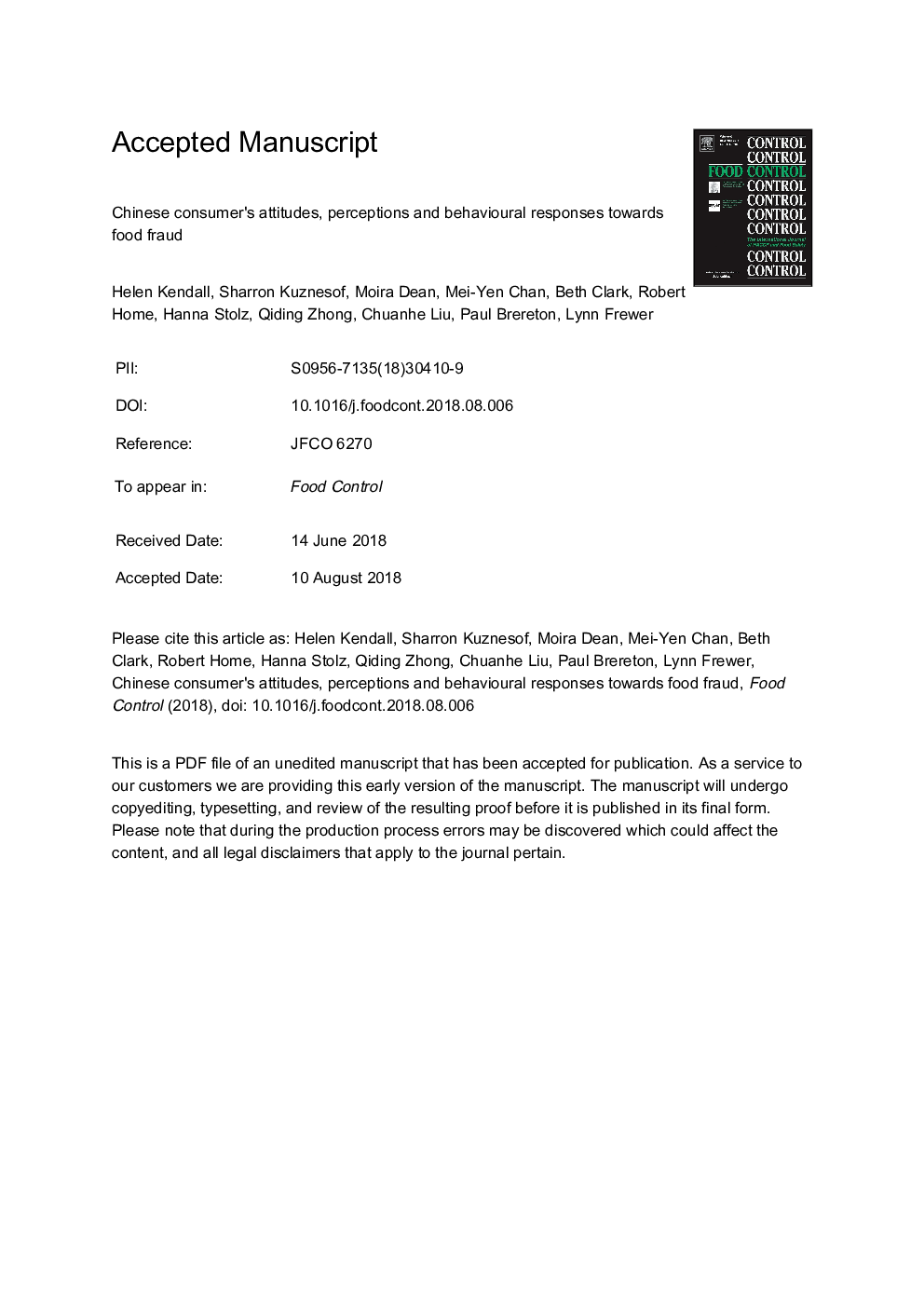| Article ID | Journal | Published Year | Pages | File Type |
|---|---|---|---|---|
| 10117785 | Food Control | 2019 | 60 Pages |
Abstract
Regulation of food systems exists to ensure safety and enhance consumer confidence in the food which they purchase and consume. However, some regulatory systems fail to instil public confidence. In China for example, trust in the domestic food system is low as a consequence of multiple high-profile food scandals, many of which linked to food fraud. Fraud occurs when food is intentionally adulterated for economic gain and may, but not always, pose a risk to the safety of food. Food authenticity and quality may also be compromised. The focus of this research relates to how Chinese consumers perceive food fraud and make choices in the absence of trust in regulatory systems. Seven focus groups with middle class Chinese participants in tier 1 and 2 cities (Beijing, Guangzhou and Chengdu) were conducted to explore attitudes of and perception towards food fraud. Infant milk formula, olive oil and Scotch whisky were used as prompts for attitudinal and perceptual elicitation. The findings indicated that Chinese consumers consider food fraud to represent a food hazard that poses a threat to the authenticity, quality and reliability of food and increased the risk of purchasing and consuming of unsafe food. Consumers were found to rely on informal kinship networks as trusted sources of information regarding food products' authenticity and safety. Behavioural responses included a range of risk relieving strategies to support food purchasing judgements, in the perceived absence of regulatory protection, that included: pre-purchase and consumption information seeking; the use of product attributes as authenticity cues; carefully selected acquisition sources; as well as a range of domestically-situated food practices. The strategic implications for food companies and policy are discussed.
Keywords
Related Topics
Life Sciences
Agricultural and Biological Sciences
Food Science
Authors
Helen Kendall, Sharron Kuznesof, Moira Dean, Mei-Yen Chan, Beth Clark, Robert Home, Hanna Stolz, Qiding Zhong, Chuanhe Liu, Paul Brereton, Lynn Frewer,
